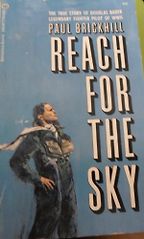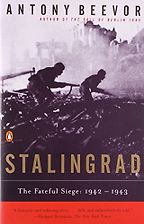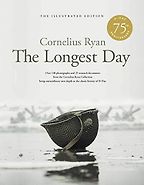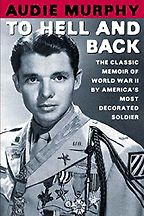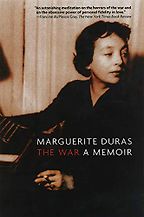Books by Paul Brickhill
“Reach for the Sky is about Douglas Bader, the legless Second World War flying ace and an extraordinary character. He lost both his legs in a flying accident in the 1930s and somehow—through bluster and bravado and connections and just doggedness—persuaded the RAF to allow him to return to combat and he flew in the Battle of Britain. He was very good pilot, obviously…Then, he was shot down and taken prisoner. He was a legend among the Germans and while he was recuperating in a hospital in Normandy, he was asked ‘Can we do anything for you?’…Bader replied that he needed new legs and the Germans arranged for the RAF to drop in these legs and they were delivered to Bader. It’s an extraordinary story. The first thing Bader did once he had fitted the legs was to try and escape. He continued to try to escape throughout the rest of the war and was placed in Colditz. Colditz was the maximum-security prison that the Germans had for serial escapers—people who thought it was their duty to try and escape and kept on doing it—along with some high-profile prisoners….Bader escaped from Colditz. Here’s a guy who couldn’t be put down, he was just indomitable.” Read more...
The best books on World War II Battles
Alex Kershaw, Historian
Interviews where books by Paul Brickhill were recommended
-

1
Stalingrad
by Antony Beevor -

2
The Longest Day
by Cornelius Ryan -

3
Reach for the Sky: The Story of Douglas Bader, Hero of the Battle of Britain
by Paul Brickhill -

4
To Hell and Back: The Classic Memoir of World War II by America's Most Decorated Soldier
by Audie Murphy -

5
The War: A Memoir
by Marguerite Duras
The best books on World War II Battles, recommended by Alex Kershaw
The best books on World War II Battles, recommended by Alex Kershaw
In World War II human beings were tested over and over again, and that is part of what explains its enduring fascination, says bestselling historian Alex Kershaw. He recommends five books of great storytelling that immerse you in the drama, the heroism and the tragedy of World War II and also have the benefit of being relatively short.
